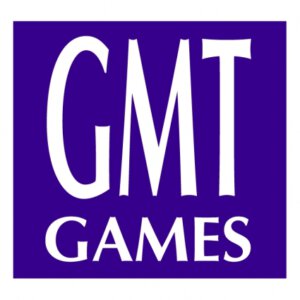
Basically, P500 is designed to create a steady cash flow for some of your favorite game companies as well as allowing them to produce the products that gamers want to buy. This also allows companies such as GMT and LnL to avoid risk of poor sales of one title crippling their ability to produce great games. Publishers must invest thousands of dollars to conceptualize, develop, edit, print, package and distribute a new title. Long-time gamers know all too well that many game companies have come and gone after guessing wrong about a product.
If a new design doesn’t explode out of the sales gate when it hits the market – no matter what the reason – the company loses. And they can lose big! If a company has that happen a few times you won’t be seeing that game publisher around again.
Here at the Gaming Gang we like to have a lot of publishers out there to choose from.
That’s why you’ll see more companies using the P500 concept. Many companies in the industry use this system, or something like it, to guarantee that you get the games and products that you want. So what is it? P500 is an advance-order system that allows a company to know ahead of time that there is a definite interest in a product, before they commit all of the time, cash, and resources. Simply put, it allows them to produce exactly the products that you want!
P500 allows publishers to communicate with and hear from their customers on their wants and desires for new products. In this way, they can then schedule releases to get the “most wanted” products turned around and out the door quicker. Essentially, gamers get to determine to a large degree what a company’s future production schedule looks like. That’s the coolest part of P500; it gives you a very definite and loud voice in the discussion on which products are produced.
Companies are constantly working on new products. They’re constantly coming up with ideas for new games. When they feel that a product is rounding into shape, and believe gamers will like it, they price the product and add it to existing P500 listings – normally with a discounted price to anyone who orders from the P500 list before the charge date. Advanced orders are then tracked until a predetermined number is reached – normally 500.
Once a title is available for preorder, you decide whether you want it. If you do, you order it by credit card, and your name is added to a list of buyers. Your credit card is not charged until well after the product has passed the P500 line. When the title is ready for final production a charge date is announced – the date the publisher actually charges your card for the game and shipping.
If for some reason a design doesn’t get 500 (or more) interested gamers to commit to purchasing the product, you’re never charged anything. That’s the beauty of it; there’s absolutely no risk on the gamer’s end. But this is where I think there is a bit of a misunderstanding with some gamers. Some people think that P500 games are coming out but there just isn’t a release date yet. Or they think that if they place an order for a P500 game they’ll be out money if the game doesn’t see print.
If you preorder a game on a P500 list you’re not paying for that game unless it does go into production. If it doesn’t see the light of day you haven’t paid for anything. Yet, if not enough gamers are interested in the release, no matter how excited you are about the game it won’t be produced. In other words, if you run across something on a P500 list somewhere and are interested in checking it out vote with your credit card. This will not only help bring the title to fruition while also guaranteeing you receive the game when it releases.
In my opinion the P500 preorder system is a great business model that not only keeps your favorite smaller game companies in business but also lets them know what sort of titles you’re interested in playing. It’s good for gaming and good for gamers!
- Chivalry & Sorcery Fifth Edition Reviewed - Nov 3, 2024
- Campaign Builder: Castles & Crowns Reviewed - Nov 2, 2024
- The Roleplaying Game of the Planet of the Apes Quickstart | First Look and Page-Through - Nov 1, 2024